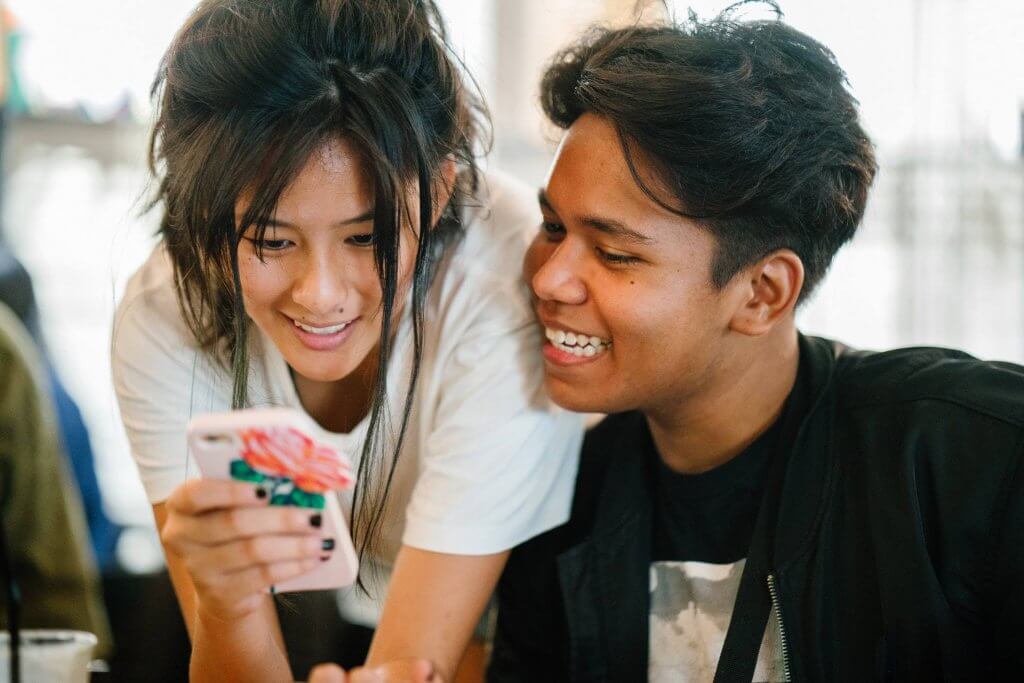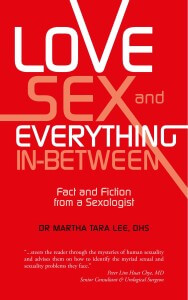
Recently veteran actors Zoe Tay and Guo Liang discussed the dating habits of young people in Singapore. They were shocked to learn that young people are more open to dating casually and do not necessarily view marriage as a necessary step in a relationship. They also expressed concern over the lack of commitment in modern relationships. Read more here.
Are you considering entering into a casual relationship? If so, you are not alone. Casual relationships are becoming increasingly popular as people look for ways to explore their sexuality and desires without the commitment of a traditional relationship. In this blog, we will explore why people want casual relationships, the different types of casual relationships, navigating casual relationships, how to know if you can handle casual dating, how to deal with hurting someone or the possibility of hurting someone, dealing with risk of STIs, and when to end casual dating.
As a relationship counselor and clinical sexologist, I see a lack of commitment in modern relationships due to a number of factors.
- People are increasingly choosing to prioritize their own individual needs and desires over the needs of their partner or the relationship as a whole. This can lead to a lack of trust, communication, and intimacy in the relationship.
- People are often hesitant to make long-term commitments due to the uncertainty of the future. This can lead to a lack of security and stability in the relationship.
- People are more likely to engage in casual relationships or “hook-ups” rather than committing to a long-term partnership. This can lead to feelings of insecurity and dissatisfaction in the relationship.
On Types of Casual Relationships
Casual relationships nowadays come in many forms. These include friends with benefits, booty calls, casual dating, and open relationships.
- Friends with benefits is a type of relationship where two people engage in sexual activity without being in a committed relationship. This type of relationship is often seen as a way to have fun and explore one’s sexuality without the commitment of a traditional relationship.
- Booty calls are when two people meet up for the sole purpose of having sex. There is no commitment or expectations beyond the physical encounter.
- No Strings Attached is used to describe a casual relationship that does not involve any expectations, commitments, or obligations. It implies that both parties are free to engage in other relationships or activities without any repercussions.
- Casual dating is when two people go on dates without any expectation of a long-term relationship. This type of relationship allows for exploration and getting to know someone without the pressure of a committed relationship.
- Kissing buddies are two friends who are comfortable enough with each other to share a kiss. They may be close friends, romantic partners, or even just acquaintances who enjoy the occasional kiss. Kissing buddies can be a great way to show affection and build intimacy between two people.
- Open relationships involve two people who are in a committed relationship but also have an agreement to engage in sexual activities with other people. This type of relationship can be beneficial for couples who want to explore their sexuality without breaking up.
How to Navigate Casual Relationships
In today’s world, it is essential to have honest, trusting, safe relationships built on communication, consent, and boundaries.
- Honesty is essential in any relationship, casual or otherwise. Without it, trust cannot be established and the relationship will not be able to progress. Honesty is the foundation of any healthy relationship, and it is important to be honest with yourself and your partner about your feelings and intentions. Can both of you speak your truth?
- Trust is another important factor in any relationship. Without trust, it is impossible to build a strong connection with someone. Trust is built through open communication and honesty, and it is essential for a healthy relationship. Even in the short time that you know this person, can you trust that their words and deads are in coherence?
- Safety is also important in casual relationships. It is important to make sure that both partners feel safe and comfortable in the relationship. This includes setting boundaries and respecting each other’s boundaries.
- Communication is key in any relationship, casual or otherwise. It is important to communicate openly and honestly with your partner about your feelings and expectations. This will help to ensure that both partners are on the same page and can build a strong connection. Are both of you effective communicators?
- Consent is also essential in any relationship. It is important to make sure that both partners are comfortable with the level of intimacy they are engaging in and that they have given their consent for any sexual activity. Are both of you able to respect each other’s yes and no without need for further explanation or justification?
- Boundaries are also important in casual relationships. It is important to set boundaries and respect each other’s boundaries in order to ensure that both partners feel safe and respected. This will help to create a healthy and respectful relationship. Boundaries aren’t bad things that keep people “out”, but keep you “in”.
How do I know if I can handle casual dating?
The best way to know if you can handle casual dating is to think about what you want out of it. Consider what your expectations are, what kind of commitment level you’re comfortable with, and how much time and energy you have to devote to a relationship. It’s also important to think about how you’ll handle any potential emotions that come up during casual dating. If you’re not sure, it’s always best to talk to a trusted friend or family member for advice.
How do I ask somebody to get involved with me in casual dating?
It depends on the situation and the person you are asking. If you know the person well, you could start by expressing your interest in getting to know them better and seeing if they would like to go on a casual date. If you don’t know the person very well, it may be best to start with a friendly conversation and get to know them a bit before asking them out.
How do I not get too emotionally attached?
- Set boundaries and expectations: Before entering into a casual relationship, it is important to set boundaries and expectations. Be clear about what you are looking for and what you are not looking for in the relationship.
- Don’t get too comfortable: It is easy to become too comfortable in a casual relationship, but it is important to remember that it is still a casual relationship. Don’t let yourself get too attached.
- Avoid talking about the future: When you are in a casual relationship, it is best to avoid talking about the future. This can lead to unrealistic expectations and can make it harder to detach emotionally if the relationship ends.
- Don’t take things too seriously: Casual relationships should be fun and lighthearted. Don’t take things too seriously or put too much pressure on yourself or the other person.
- Spend time with friends: Make sure to spend time with your friends and family as well as your casual partner. This will help keep things in perspective and remind you that there are other people in your life who care about you.
- Talk about it: If you start to feel like you are getting too emotionally attached, talk to your partner about it. They may be feeling the same way and it can help to get things out in the open and discuss how to move forward in a healthy way.
- Take a break: If things start to become too intense, take a break from the relationship for a while. This will give you time to think about what you want and need from the relationship and will help you keep things in perspective.
- Focus on yourself: Remember that casual relationships are not meant to be all-consuming. Make sure to focus on yourself and your own needs as well as those of your partner.
- Be honest with yourself: Be honest with yourself about how you are feeling and why you are in this relationship in the first place. This will help you stay grounded and keep your emotions in check.
- Have fun: Casual relationships should be fun! Make sure to enjoy yourself and don’t take things too seriously or put too much pressure on yourself or the other person.
How do I deal with hurting someone or the possibility of hurting someone?
- Be honest and open with your feelings. If you’re feeling unsure or uncomfortable about the situation, let the other person know.
- Communicate your expectations. If you’re not looking for a serious relationship, let the other person know. This will help avoid any misunderstandings and hurt feelings later on.
- Make sure to check in regularly with the other person to make sure that they’re feeling okay about the situation.
- Respect boundaries and be mindful of what the other person is comfortable with.
- Don’t make promises you can’t keep. Don’t lead someone on if you’re not sure if you can follow through with your promises or intentions.
- Don’t pressure the other person into doing anything they don’t want to do.
- If you feel like you’re hurting someone, apologize and take responsibility for your actions.
- Be mindful of your actions and words. Even in casual dating, it’s important to be mindful of how your words and actions may affect the other person.
- Listen to the other person’s feelings and be understanding of their perspective.
- Be willing to compromise and make adjustments if needed.
How do I deal with my fear of STis in casual relationships?
If you’re in a casual relationship and are worried about the risk of contracting a sexually transmitted infection (STI), there are steps you can take to help reduce your risk and manage your fear.
- Educate yourself: Learn about the risks associated with casual relationships and the different STIs that can be transmitted.
- Talk to your partner: Have an open and honest conversation with your partner about your concerns and expectations for the relationship.
- Use protection: Always use protection, such as condoms, when engaging in sexual activities.
- Get tested: Get tested regularly for STIs to ensure that you and your partner are both healthy.
- Seek professional help: If your fear of STIs is causing you distress or affecting your relationships, consider speaking to a mental health professional for additional support.
When do I know I should end casual dating?
When ending casual dating, it is important to be honest and direct. Let the person know that you appreciate the time you have spent together, but that you do not want to continue the relationship. Be sure to express your feelings in a respectful manner and give the other person space to process their feelings.
When…
- You no longer feel a connection with the person you are dating.
- You realize that you want something more serious than what the other person is offering.
- You are no longer having fun or feeling excited about spending time together.
- One or both of you start developing feelings that go beyond casual dating.
- You realize that you have different goals and values than the other person.
- One or both of you are no longer interested in continuing the relationship.
- One or both of you start seeing someone else.
- The relationship has become too emotionally intense or complicated for either of you to handle.
Casual relationships can be a great way to explore different types of connections and to learn more about yourself and what you need in a relationship. It is important to be honest with yourself and with your partner about your expectations and boundaries, and to be mindful of your words and actions. If you find yourself feeling overwhelmed or uncertain, it may be time to take a step back and reevaluate the situation. Ultimately, it is up to you to decide when casual dating is right for you and when it is time to move on.
For relationship counseling and/ or sexuality counseling, do contact me here.
About Dr. Martha Tara Lee
Dr. Martha Tara Lee has been a passionate advocate for positive sexuality since 2007. With a Doctorate in Human Sexuality and a Masters in Counseling, she launched Eros Coaching in 2009 to help individuals and couples lead self-actualised and pleasurable lives. Her expertise includes working with couples who have unconsummated marriage, individuals with sexual inhibitions and discrepancies in sexual desire, men with erection and ejaculation concerns, and members of the LGBTQIA+ and kink communities. Dr. Lee welcomes all sexual orientations and is available for online and face-to-face consultations. Martha speaks English and Mandarin.
She is the only certified sexuality educator by the American Association of Sexuality Educators, Counselors and Therapists (AASECT) in the region (as of 2011) and is also an AASECT certified sexuality educator supervisor (as of 2018). She strives to provide fun, educational, and sex-positive events and is often cited in the media including Huffington Post, Newsweek, South China Morning Post, and more. She is the appointed Resident Sexologist for Singapore Cancer Society, Of Noah.sg, OfZoey.sg, and Virtus Fertility Centre. She is the host of radio show Eros Evolution for OMTimes Radio. In recognition of her work, she was named one of ‘Top 50 Inspiring Women under 40’ by Her World in July 2010, and one of ‘Top 100 Inspiring Women’ by CozyCot in March 2011. She is the author of Love, Sex and Everything In-Between (2013), Orgasmic Yoga: Masturbation, Meditation and Everything In-Between (2015), From Princess to Queen: Heartbreaks, Heartgasms and Everything In-Between (2017), and {Un}Inhihibited (2019).
You can read the testimonials she’s received over years here. For her full profile, click here. Email her here.

 Become a Patron!
Become a Patron!





